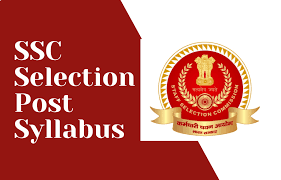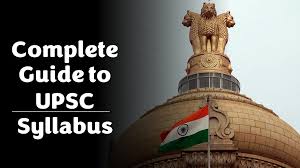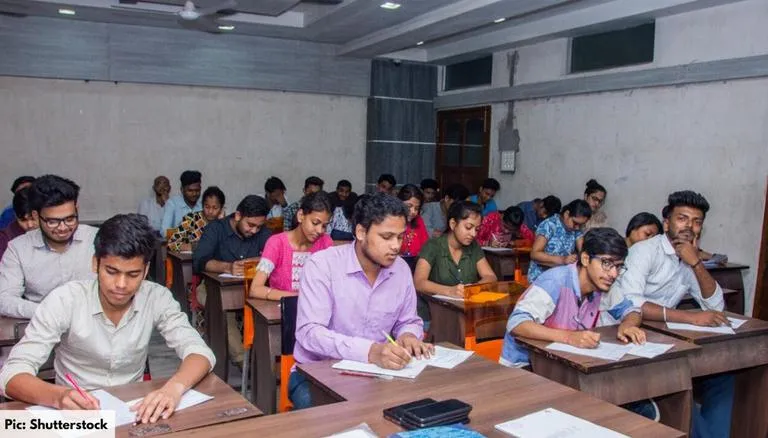SSC (Staff Selection Commission) Syllabus for job:-
SSC (Staff Selection Commission) Syllabus for job:
- General Intelligence & Reasoning: This section includes questions on analogies, similarities and differences, spatial orientation, spatial visualization, problem-solving, analysis, judgment, decision making, visual memory, discrimination, observation, relationship concepts, arithmetical reasoning, and figural classification.
- General Awareness: This section covers questions on current events, history, culture, geography, economic scene, general policy, scientific research, and awards and honors.
- Quantitative Aptitude: This section includes questions on simplification, ratio and proportion, percentage, interest, profit and loss, time and distance, time and work, average, problems on ages, number series, data interpretation, and miscellaneous mathematical problems.
- English Comprehension: This section covers questions on reading comprehension, grammar, vocabulary, sentence structure, synonyms, antonyms, and writing ability.
- Basic Computer Knowledge: This section includes questions on computer fundamentals, MS Office, internet and web browsing, and email management.
Overall, the SSC Staff syllabus requires candidates to have a good understanding of various subjects and skills, including logical reasoning, general awareness, quantitative aptitude, English comprehension, and basic computer knowledge.

If you are referring to the Staff Selection Commission (SSC) exams in India, here is an overview of the syllabus and score distribution for the various exams conducted by SSC:
- SSC Combined Graduate Level Examination (CGL): This exam is conducted for recruitment to various Group B and C posts in ministries, departments, and organizations of the Government of India. The syllabus for this exam includes the following sections:
- General Intelligence & Reasoning
- General Intelligence and Reasoning is a significant section in the SSC exams, which requires a logical approach and a strong understanding of concepts. Here are some tips to help you prepare for this section:
- Understand the syllabus: Familiarize yourself with the syllabus of General Intelligence and Reasoning, which includes topics such as analogies, coding-decoding, series completion, syllogism, spatial visualization, and more.
- Practice regularly: Practice is the key to success in any exam. Solve practice papers and take mock tests regularly to improve your speed and accuracy.
- Understand the logic: To excel in this section, it is important to understand the logic behind each question. Analyze the question carefully and try to identify the patterns.
- Use shortcuts: Learn shortcuts and tricks to solve the questions faster. For example, memorizing the squares, cubes, and roots of numbers can help you solve certain questions quickly.
- Manage your time: Time management is crucial during the exam. Allocate time to each section and question accordingly to ensure that you complete the paper within the given time.
- Stay calm and composed: Don’t panic if you come across a difficult question. Take a deep breath, relax and try to approach the question with a calm mind.
- Stay updated: Stay updated with the latest news and events as questions related to current affairs may be asked in this section.
- Remember, regular practice and understanding the logic behind each question can help you improve your score in the General Intelligence and Reasoning section. Good luck!
- General Awareness
- Quantitative Aptitude
- English Comprehension
The exam consists of four sections, each carrying a weightage of 25 marks, for a total of 100 marks.

- SSC Junior Engineer (JE) Examination: This exam is conducted for recruitment to the post of Junior Engineer in various government organizations. The syllabus for this exam includes the following sections:
- General Intelligence & Reasoning
- General Awareness
- General Engineering (Civil & Structural / Electrical / Mechanical)
- For preparing for the General Engineering section of the Staff Selection Commission (SSC) exam, you need to have a good understanding of the basic concepts and principles of Civil and Structural, Electrical, or Mechanical Engineering. Here are some tips that can help you prepare for this section:
- Understand the syllabus: Familiarize yourself with the syllabus of the General Engineering section. The syllabus typically covers topics such as mechanics, thermodynamics, electrical circuits, electronics, and more, depending on the specific engineering discipline.
- Study from good resources: Choose the right books and study materials that cover the entire syllabus and provide good explanations of the concepts.
- Practice numerical problems: Engineering is a practical subject, and solving numerical problems is a crucial part of it. Practice numerical problems from different topics to improve your problem-solving skills.
- Revise regularly: Regular revision is important to keep the concepts fresh in your mind. Make a habit of revising the important topics at regular intervals.
- Solve previous year papers: Solve previous year SSC exam papers to get a sense of the types of questions asked and the level of difficulty.
- Stay updated: Stay updated with the latest developments and trends in the field of engineering. Read industry publications, attend webinars, and follow relevant experts and organizations on social media.
- Manage your time: Time management is crucial during the exam. Allocate time to each question and section according to your strengths and weaknesses.
- Remember, the General Engineering section tests your understanding of the basic principles of engineering. So, focus on building a strong foundation of concepts, and practice regularly to excel in this section. Good luck!
The exam consists of two papers, each carrying a weightage of 200 marks, for a total of 400 marks.

- SSC Combined Higher Secondary Level (CHSL) Examination: This exam is conducted for recruitment to various posts such as Lower Divisional Clerk (LDC), Data Entry Operator (DEO), and Postal Assistant/Sorting Assistant in various ministries, departments, and organizations of the Government of India. The syllabus for this exam includes the following sections:
- General Intelligence
- English Language
- Quantitative Aptitude
- General Awareness
The exam consists of three sections, with the first two sections carrying a weightage of 50 marks each, and the third section carrying a weightage of 25 marks, for a total of 200 marks.

- SSC Multi-Tasking Staff (MTS) Examination: This exam is conducted for recruitment to various Group C posts such as Peon, Daftary, Jamadar, Junior Gestetner Operator, Chowkidar, Safaiwala, Mali, etc., in various ministries, departments, and organizations of the Government of India. The syllabus for this exam includes the following sections:
- General Intelligence & Reasoning
- Numerical Aptitude
- General English
- The General English section in the Staff Selection Commission (SSC) exam assesses your proficiency in the English language. Here are some tips to help you prepare for this section:
- Improve your grammar: Brush up on your grammar skills by studying grammar rules and practicing exercises. Focus on topics such as tenses, prepositions, articles, and conjunctions.
- Enhance your vocabulary: Expand your vocabulary by learning new words and their meanings. Use flashcards or a vocabulary-building app to make the learning process easier.
- Read extensively: Read newspapers, magazines, and books to improve your comprehension skills and increase your exposure to different writing styles.
- Practice writing: Practice writing essays, letters, and other forms of written communication to improve your writing skills.
- Solve previous year papers: Solve previous year SSC exam papers to get a sense of the types of questions asked and the level of difficulty.
- Improve your listening and speaking skills: Listen to English podcasts, watch English movies or TV shows, and practice speaking English with friends or a language partner to improve your listening and speaking skills.
- Manage your time: Time management is crucial during the exam. Allocate time to each question and section according to your strengths and weaknesses.
- Remember, the General English section tests your proficiency in the English language. So, focus on improving your grammar, vocabulary, reading, writing, and speaking skills, and practice regularly to excel in this section. Good luck!
- General Awareness
The exam consists of two papers, each carrying a weightage of 100 marks, for a total of 200 marks.

Notes:
The score distribution and duration of the exams can vary depending on the specific organization and country. It is recommended to consult official sources for accurate and up-to-date information on the syllabus and exam pattern.








